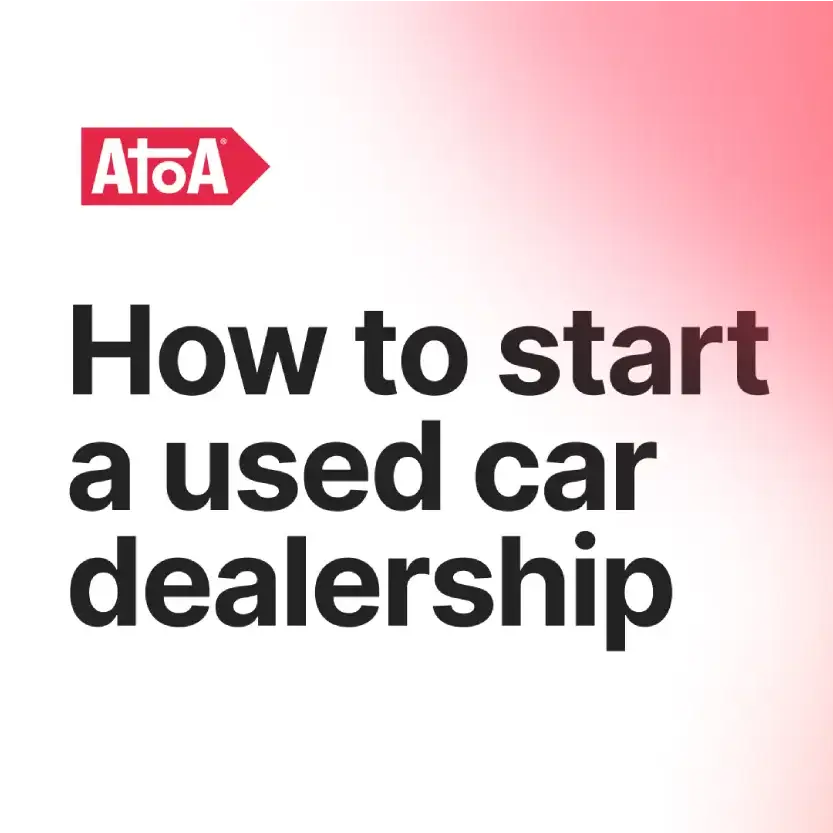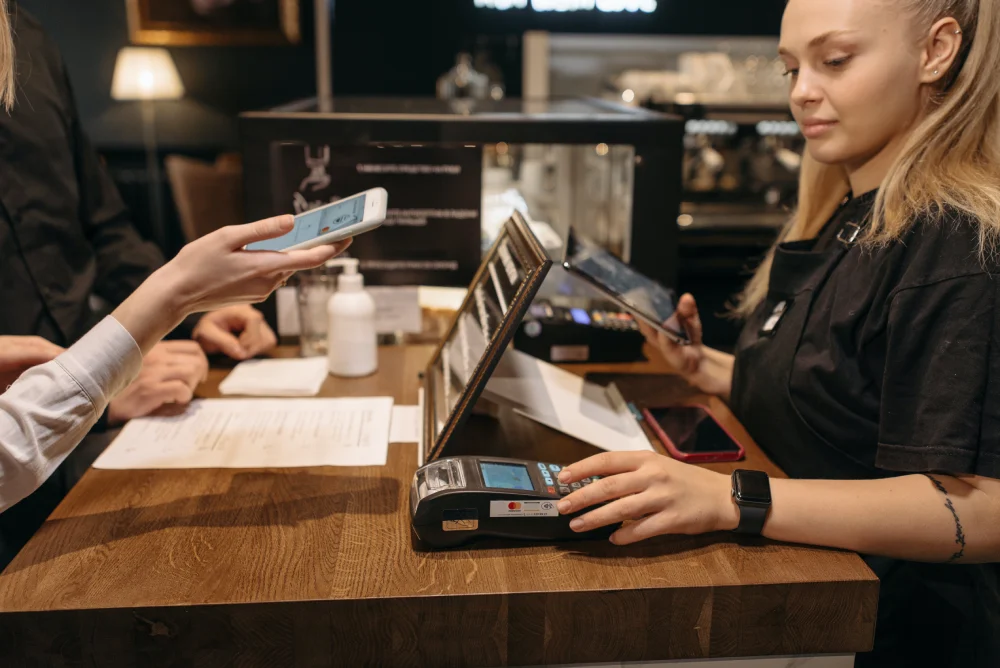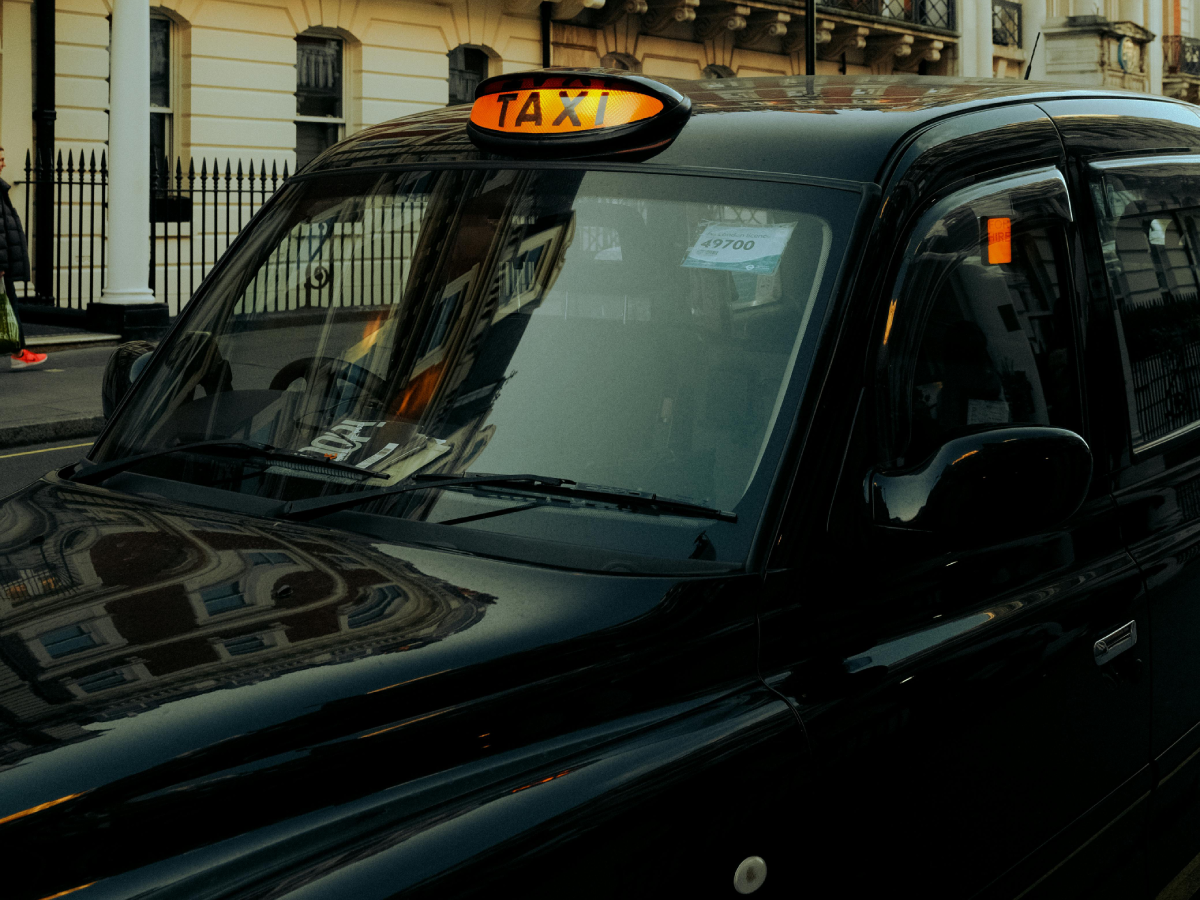Ready to get started?
Easily integrate next-generation payments and financial data into any app. Build powerful products your customers love.
The UK used car market is one to watch, with sales surging 6.5% in the first quarter of 2024. Nearly 2 million used vehicles changed hands, signalling the strongest start to a year since 2019, according to the SMMT. Post-pandemic shifts and economic concerns make this a perfect storm for entrepreneurs who can set their sights on the rising demand for second-hand cars. Plus, starting a used car dealership is easier than you think. The entry barriers are lower than new car dealerships, with healthy profit margins, and the option to focus on your passion and expertise – from luxury vehicles to reliable family cars, or show-worthy classics. And if you use Atoa’s open banking payment technology, you’ll have a competitive edge from the start by accepting instant automotive payments. So, maybe it’s time to learn how to start a used car dealership…
This article covers:
- The skills you might need to start a used car business
- A checklist for rules and regulations for running a car showroom or business
- How to finance your second-hand car venture
- How Atoa’s instant payments can help you
Launching a used car business in 2024
Running a successful used car dealership is more than selling cars. Instead, it’s about identifying customers around you to supply what they want or need. So before any cars change hands, it’s time to do some digging…and market research is the best place to start.
Find your calling with market research
Begin by identifying your target customer. Are they young professionals seeking affordable or fuel-efficient vehicles? Families looking for spacious people carriers? Enthusiasts or collectors searching for classic or luxury models? Finding your target audience will shape your stock list and overall marketing strategy.
Next, research the local market where you are. What types of used cars are in high demand in your area? Which models hold their value best? Utilise resources like AutoTrader, SMMT reports and local dealership data to gain insights into local market trends.
If you have the skills but need inspiration, why not consider these used car dealership models?
- Clean air cars: Supply the growing demand for ULEZ-friendly vehicles required in London and beyond with a dealership that caters to environmentally conscious city dwellers.
- Classic collectors: This dealership offers well-maintained and iconic vehicles for classic car collectors, often focusing on a particular brand or model.
- 4×4 experts: This dealership specialises in farm-ready, off-road vehicles for rugged terrain.
Carving out a niche and nailing a specific customer base will help you build a dealership known as a trusted hotspot that customers return to.
Used car dealership rules and regulations checklist
Get any licensing and registration requirements sorted before you sell any cars. This can range from relevant licenses to consumer rights and keeping data safe. It’s a quick pit stop to keep everything legit and above board. Key areas to focus on include:
- Trade plates: If you drive untaxed stock vehicles on public roads, obtain trade license plates from the gov.uk website and follow their strict usage conditions.
- HMRC registration: Register with HMRC and follow anti-money laundering measures.
- FCA regulation for insurance: If you plan to sell insurance (including warranties), get directly authorised by the FCA or an appointed representative of an authorised insurer.
- Update the log book (V5C): This step is essential if you change your name and address, or modify the vehicle. Find out more here.
- MOT testing: You’ll need to get authorised by the DVLA if you plan to offer MOT services.
- Consumer Rights Act 2015: Follow consumer rights to provide fair descriptions, fit-for-purpose products, and the expected quality of goods and services.
- Tyre safety standards: Any tyres you sell must meet UK safety standards, including tread depth requirements. Dispose of old tyres using a waste carrier vetted by the Environment Agency.
- Hazardous substances handling: Your workshop needs safe practices to store, use, and dispose of controlled substances.
- Parts and repairs: Use correct parts, fit them safely, and carry out repairs to a high standard to keep drivers safe.
Additional considerations
- Get insurance coverage for your business, including vehicle trader’s motor insurance, premises, stock, goods in transit, and liability.
- Keep everyone safe by following health, safety and fire safety regulations in your showroom or workshop.
- Stay current with GDPR rules if you store your customer’s data electronically.
- Follow all relevant employment laws for your staff.
Find the right location
The location of your dealership can have an impact on its success. Ask yourself:
Is it visible? Choose a location with high visibility from major roads or in a well-trafficked area.
Is it accessible? Ensure ample parking and easy access for customers.
Who are your competitors? Research existing dealerships in the area to identify potential gaps in the market.
Physical premises can offer visibility for passing trade, but it’s also worth considering alternative options like starting a used car dealership from home. This can be a cost-effective way to test the waters and build your business slowly without capital upfront.
Above all, careful research and planning rank high in running a successful used car dealership. Understanding your target market, following legal requirements, and choosing the right location builds a strong foundation for your business.
💡 Think beyond the forecourt. Many successful traders start their dealerships from home as online-only businesses, using platforms like AutoTrader, eBay and social media.
Financing your used car dealership
Starting your own used car dealership in the UK is an exciting journey, but it’s important to understand the financial side before you put the pedal to the metal. Let’s break down the start-up costs in plain language, so you can create a realistic budget and secure the funding you need.
How much will it cost?
Here’s a breakdown of the typical costs you’ll need to consider when starting a used car dealership in the UK:
- Inventory: The cars you offer are your bread and butter, so factor in the cost of your initial stock.
- Premises: You’ll need a place to display and store your cars. This could be a small garage, a showroom, or even starting online. A small rented lot might cost around £1,000 per month, but the price depends on your location.
- Legal and licensing: You need specific licenses and legal requirements to operate a used car dealership so budget for these setup fees.
- Marketing and advertising: You need to get the word out! Set funds aside for online advertising, local promotions, and signs.
- Staff: Will you need help, and how much will this cost you?
- Insurance: Protect your business with the relevant insurance for your garage and stock. Plus you need to factor in miscellaneous expenses such as utilities, your website, and accounting fees.
Now that you have a clearer picture of the costs, let’s explore how you can finance your used car dealership…
How to fund your business
Starting and running a used car dealership in the UK demands careful planning and preparation. Create a realistic budget, pore over your funding options, and you could soon turn your business dream into a reality.
- Personal savings can be a great way to kick-start your business.
- Many banks and lenders offer small business loans designed for new businesses.
- Family and friends might be willing to invest in your venture but consult with a lawyer to formalise any agreements.
Remember to:
- Shop around and compare prices to get the best deals on everything from inventory to insurance.
- Start small, as you don’t need a massive inventory to begin. Scale up as you grow.
- Talk to other used car dealers or business advisors to see if they have any useful advice.
Build a dealership customers love
Once you know what your potential customers need, getting them excited about your cars is key to success. Getting the word out there is essential for a brand-new business because the public won’t know if you don’t tell them!
Here are some ways to reach more potential customers:
- Get online and work your magic: Post eye-catching photos of your stock on social media so customers know what to expect. Explore opportunities to run local ads on websites or social media pages that local people around you visit.
- Partner up: Team up with garages in your area to offer discounts for their customers or sponsor a local service to get your name recognised.
- Real-life success: Check out Ponko, who uses Atoa for instant payments that save them £1000s per month on transaction fees.
A hassle-free payment process is a great way to stand out, which is exactly what Ponko did. Accepting payments directly from your customer’s bank app means they can pay how they want whenever they want. Maybe you’ll let them pay a deposit remotely, then pay the rest by scanning a QR code when they collect the car. Instant payouts mean you have the final payment in seconds, letting you close sales faster.
As your business grows, Atoa grows with you. As you start accepting higher volumes we can help your dealership with tailored rates and features, so you can focus on what you do best – selling great cars.
FAQs
What are the legal requirements for starting a used car dealership in the UK?
You’ll need the relevant licenses, permits and insurance. Additionally, there are some consumer and data protection laws that automotive businesses need to follow. It’s wise to register as a limited company and use an accountant.
How much money do I need to start a used car dealership?
Start-up costs vary, but expect to spend on inventory, premises (if not online-only), marketing, and legal fees. A realistic budget is essential.
Where should I find used cars to sell at my dealership?
Auctions, trade publications, online platforms like eBay, and private sellers are good sources.
How do I market my car business?
Combine online promotion such as social media and a strong website with offline marketing like ads in local newspapers and attending car shows. Promote your unique selling points to build a strong brand with authority in your space.
How can I stand out from the competition as a used car dealer?
Offer excellent customer service, warranties, competitive prices, and modern payment options like Atoa so customers can secure and pay for cars without hassle. Being an expert in a certain model or type of car can also help you attract a loyal customer base.



